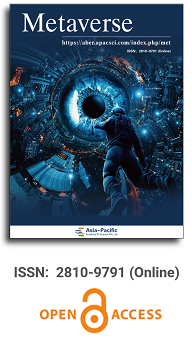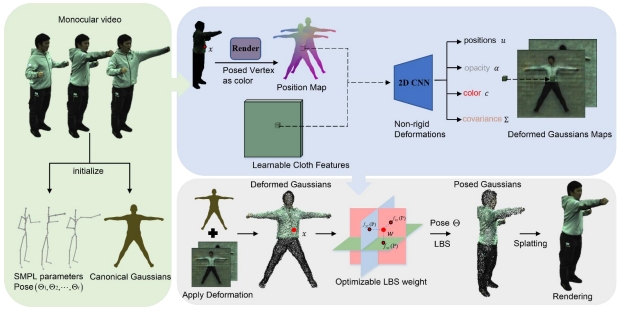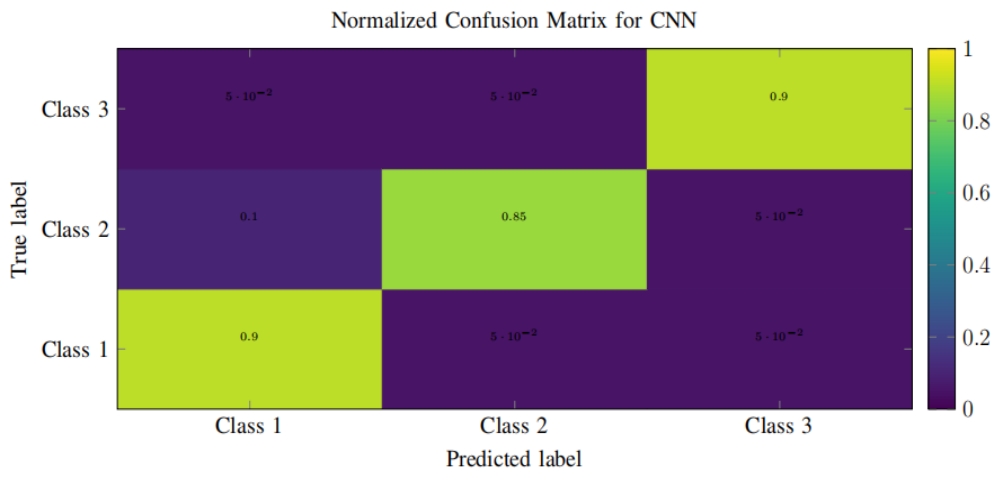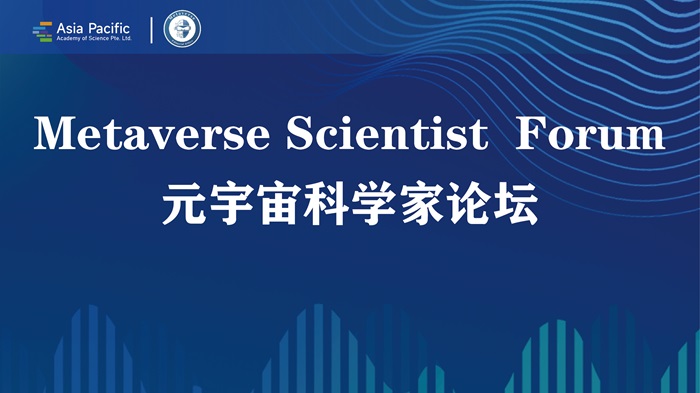
Asia Pacific Academy of Science Pte. Ltd. (APACSCI) specializes in international journal publishing. APACSCI adopts the open access publishing model and provides an important communication bridge for academic groups whose interest fields include engineering, technology, medicine, computer, mathematics, agriculture and forestry, and environment.



 This Metaverse Scientist Forum No.2 was presided over by Dr. Luyao Zhang, Associate Senior Researcher at the Digital Innovation R&D Center of Duke Kunshan University. The event featured an opening address by Prof. Zhigeng Pan, Director of the Jiangsu Metaverse Engineering Research Center. Prof. Pan highlighted the critical issue of translating metaverse technology into practical applications, noting that artificial intelligence (AI) is a core component of metaverse technology. He expressed his expectation that advancements in AI will significantly facilitate the implementation and application of metaverse technologies. The forum featured invited presentations by Prof. Zhong Chen from Peking University and Prof. Shaoliang Peng from the National Supercomputing Center in Changsha. Their reports focused on exploring the role of AI-Generated Content (AIGC) in driving innovation and development within the educational metaverse.
Topic 1: The Role of AIGC in Fostering Innovation within the Educational Metaverse
The Institute of Metaverse Technology was established by the School of Computer Science at Peking University in 2021. This institute comprises a diverse array of teams, including those dedicated to human-computer interaction perception technology, high-performance parallel computing application development, distributed network computing, as well as blockchain and cyberspace security. The recent meeting explored strategies for developing a Web3.0 protocol suite aimed at integrating these various technologies to create a truly implementable metaverse. Furthermore, the conference addressed the definition of the metaverse concept, which is understood as a virtual world constructed by humans through digital technology that interacts with the real world. According to Prof. Chen, it is anticipated that the development of the metaverse will reach maturity by 2030. The integration of metaverse technologies with AIGC (Artificial Intelligence Generated Content) is expected to propel the evolution of the Internet in future developments. In terms of educational applications within the metaverse, the Digital Art Studio from Peking University's School of Software and Microelectronics has partnered with Harvard University’s Sports Medicine Center. This collaboration focuses on initiatives targeting chronic disease intervention, subhealth population management, and psychological guidance while committing to advancing smart health and digital sports initiatives within the metaverse framework. Through hardware design, software research, and platform integration efforts, this partnership aims to provide engaging and enjoyable solutions for youth concerning sports participation and mental health. Prof. Chen emphasized that any future standardized system for an educational metaverse should prioritize high-quality teaching and learning outcomes while adopting a learner-centered approach to facilitate educational goal attainment. While AI can serve as an invaluable tool for enhancing efficiency and reducing operational costs associated with human resources, it remains imperative that responsibilities and ethical considerations are upheld within human oversight. In the sports metaverse, immersive sports experiences enable scientific and personalized configurations, accumulate quantifiable and visualized data effects, and introduce team-based and competitive elements. These features enhance user experience and enjoyment while helping to release negative emotions and stress. Additionally, by organizing activities such as smart triathlon competitions, the initiative aims to inspire children's participation in sports and provide more diverse sports scenarios for secondary school students.
Topic 2: Open-Source AI Large Models in China: Emerging Technologies, New Ecosystems, and Application Scenarios
Prof. Shaoliang Peng is a Changjiang Scholar and was recognized as a 2024 Stanford Top 2% Global Leading Scientist in Artificial Intelligence. He leads the Hunan Provincial Innovation Group and Distinguished Fund and also serves as the Deputy Director of the National Supercomputing Center in Changsha. Prof. Peng has achieved remarkable accomplishments in the fields of Big Data, Bioinformatics, Artificial Intelligence, Blockchain, and other technological research areas. He has published over 300 academic monographs and more than 10,000 academic papers and has received numerous national awards. In addition to his extensive research contributions, Prof. Peng has conducted in-depth studies in the field of the metaverse. He posits that artificial intelligence (AI) large models and metaverse technology are complementary, collectively advancing the construction of the metaverse ecosystem and facilitating its applications. He anticipates that these technologies will enhance work efficiency, reduce living costs, and realize the positive impact of science and technology on society. Prof. Peng emphasized the significance of underlying computational power in researching large models and the metaverse, as well as the importance of collaboration and communication with related teams. In December of last year, his team observed exceptional inference capabilities from their DeepSeek model. They completed its deployment and launched it online on January 3rd of this year, officially making it available to on-campus users by February 13th. Furthermore, they introduced the DeepSeek interface—a domestically developed value-added fusion solution accessible globally to society at large. On March 13th this year, they released the first digital financial big model within the financial sector, which supports financial enterprises in activities such as pricing stock index futures and conducting risk predictions. Looking ahead, the team will continue to focus on developing domestic big models while introducing application scenarios across a broader range of fields. Regarding artificial intelligence, Prof. Peng noted that AI has now comprehensively surpassed human performance in areas such as image recognition and facial recognition. The advancements in AI have driven significant transformations across various domains including robotics, quantum chips, bio-genetics, and game generation. Moving forward, it is expected that integrating AI with engineering will rapidly accelerate scientific innovation and implementation. All fields will need to deploy localized big models to address the issue of big models' "fantasy capabilities" through localized deployment and implementation. Currently, open-source big models have only solved 10% of the problems, with 90% still remaining to be addressed. The team hopes that students will embrace the open-source ecosystem and align their research interests with deep learning initiatives. Talent Cultivation and International Cooperation
The two professors also addressed strategies for cultivating and attracting international talent, particularly in the context of the rapid evolution of general artificial intelligence (AIGC). They discussed how universities can adapt their talent development models to meet the demand for interdisciplinary talent in emerging fields such as the metaverse and large-scale modeling. They emphasized that China should be more proactive in aligning with international trends and attracting global talent, rather than relying solely on specific incentives or perks. Additionally, they highlighted the importance of Sino-American collaborative educational initiatives and expressed hope that such cooperation would continue to thrive as the relationship between the two countries stabilizes. Finally, they proposed the development of international standards to attract more global talent to China to participate in research and development in related fields. Post-meeting Exchange Following the forum, Professor Peng Shaoliang and Professor Chen Zhong engaged in an in-depth discussion on the pathways for cooperation in leveraging General Artificial Intelligence (AIGC) to enhance the metaverse. Professor Peng encouraged students to join their team, integrate metaverse concepts into their work, and collaborate on open-source ecosystems and the DeepSeek project.
Team Introduction of two invited speakers: Institute of Metaverse Technology, Peking University National Supercomputing Center Changsha
|

Prof. Zhigeng Pan
Professor, Hangzhou International Innovation Institute (H3I), Beihang University, China

Prof. Jianrong Tan
Academician, Chinese Academy of Engineering, China
Conference Time
December 15-18, 2025
Conference Venue
Hong Kong Convention and Exhibition Center (HKCEC)
...
Metaverse Scientist Forum No.3 was successfully held on April 22, 2025, from 19:00 to 20:30 (Beijing Time)...
We received the Scopus notification on April 19th, confirming that the journal has been successfully indexed by Scopus...
We are pleased to announce that we have updated the requirements for manuscript figures in the submission guidelines. Manuscripts submitted after April 15, 2025 are required to strictly adhere to the change. These updates are aimed at ensuring the highest quality of visual content in our publications and enhancing the overall readability and impact of your research. For more details, please find it in sumissions...









.jpg)
.jpg)

